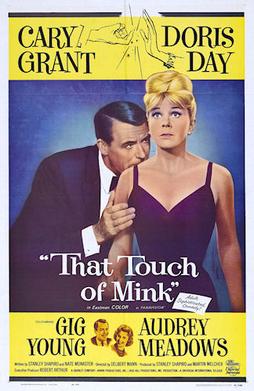Directed by Robert Mulligan and released by Universal Pictures, To Kill a Mockingbird tells the story of Alabama lawyer Atticus Finch (Gregory Peck) who defends an an African-American man that is falsely accused of raping a Caucasian woman in the 1930s. The case is seen through the eyes of Atticus' young children (Mary Badham and Phillip Alford).
I first saw this film in middle school a few years ago, and the way I've looked at films has never been the same. There are so many things about it that I remember being fascinated by: the realness that the actors brought to their performances, the family element that is prevalent throughout the film, and the moral of the story that still applies to society today.
No one other than Gregory Peck could have played Atticus. It's almost as if the character was written specifically for him. Harper Lee even said "In that film, the man and the part met". His nine minute summation speech (which he filmed in just one take) is one of my favorite scenes in any film and it's one of many moments that show how much Atticus deserved to be ranked the greatest hero in American film.
Mary Badham and Phillip Alford give the finest performances I've ever seen from child actors. Something I've always taken note of is their facial expressions throughout the film, particularly in the scene where Scout meets Boo Radley, which I'll talk more about farther into this post. They were both wonderful alongside Gregory Peck, especially Badham, who became close to him during filming (they even called each other "Scout" and "Atticus") and remained friends with him until his death in 2003.
Brock Peters plays Tom Robinson, the man Atticus defends who is accused of rape. The scene in which he gives his testimony is part of what makes the trial so powerful. It's obvious that he's an innocent man, yet few people in Maycomb believe him.
Then there is Collin Wilcox as Mayella Ewell, the supposed rape victim. Her only scene in the film takes place during the trial and it's just as moving as Peters'. Yes, I realize I keep going back to the trial, but it's the defining point of To Kill a Mockingbird.
Last, but certainly not least, is Robert Duvall as Arthur "Boo" Radley. He has no lines and appears in the final scene, but it always makes me tear up when Scout meets him for the first time and simply says "Hey, Boo". It's such a heartwarming scene.
Since the book is my favorite, I care a lot about how it's adapted, and Robert Mulligan did a wonderful job. There are few changes in the film and, in my opinion, it's quite close to the novel, although I know some people don't agree.
Overall, To Kill a Mockingbird continues to inspire me, and has changed not only the way I view films, but the way I view life and society, and I hope it does the same for many of you.










